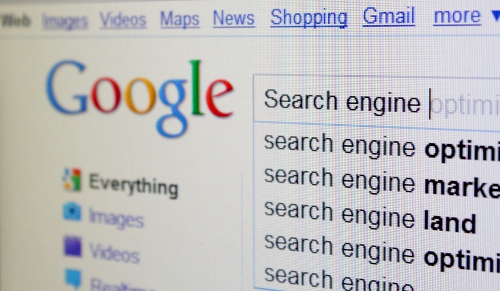We can go right ahead and assume that there are so many Mac users who opt to use Chrome as their browser rather than the Safari that their device came with. We say that with confidence because we’re one of them, and it is a fact that Google’s offering continues to be the de facto choice as a web browser for the majority of people all around the world. There’s plenty of reasons for that, although at the same time we will be like most people and say that both Safari and Firefox aren’t bad per se. Internet Explorer on the other hand is an entirely different story.
Now to be fair if IE hadn’t been left to wither on the vine that might not be the case, but the fact it was played a part in why the Edge browser has made the inroads into the market it has. But as always choice is a good thing and if anything it puts the pressure on the runner ups to get better to reclaim whatever user share they’ve lost. So competition joins choice as a good thing. This is one topic that everyone can relate too, and it’s been a topic of discussion in nearly every office here in North American and likely elsewhere around the globe.
Like any good Canadian web hosting provider we’re no different here at 4GoodHosting, and you can know that those of us around here have the same strong opinions about which web browser is best and why. Likely you have much the same going on around your places of productivity, so this is the topic for our blog entry this week.
Closed the Gap
February of this year had Microsoft Edge on the cusp of catching Safari with less than a half percentage point separating the 2 browsers in terms of popularity among desktop users. Estimates are now that Edge is used on 10.07% of desktop computers worldwide, and that is 0.46% ahead of Safari who has now dipped down to 9.61%.
Google Chrome is still far and away the top dog though, being the browser of choice for 66.58% of all desktop users. Mozilla's Firefox isn’t doing nearly as well as either of them, currently with just 7.87% of the share. That’s quite the drop from the 9.18% share it had just a few months ago.
Edge’s lead on other browsers, however, needs to be quantified depending on location. If we are to look at just the US, Edge trails Safari by quite a bit with only 12.55% of market share as compared to Safari’s 17.1%. In contrast Edge long ago passed Safari on the other side of the pond, with 11.73% and 9.36%, respectively in Europe.
And for Firefox it’s not looking promising at all, despite it being what we consider a very functional browser that doesn’t really come up short in comparison to others if you look at it strictly from the performance angle. Yes, it doesn’t have the marketing clout of either Microsoft or Google and that means brand recognition won’t be the same.
Long Ago in January 2021
As the default Windows 11 browser, the popularity of Edge has gone up quite a bit. We talked about February of this year, but let’s go back one year + 1 month further even to the start of 2021. There were concrete signs that Edge would be passing Safari for 2nd place in user popularity, and at that time the estimate was that it is being used on 9.54% of desktops globally. But back in January 2021 Safari was in possession of a 10.38% market share, and so what we are seeing is a gradual decline in popularity over the last year plus.
Chrome continues to move forward with speed though, even if it’s not ‘pulling away’ at all. It has seen its user base increase ever so slightly over that time, but at the same time Firefox has been losing users since the beginning of the year. And that is true even though Firefox hasn’t been at rest at all and has made regular updates and improvements to their browser.
So perhaps Apple and Safari can take some consolation in the fact they’re holding on third place quite well, but the reality is they have lost 0.23% of market share since February. However, we should keep in mind that Apple has hinted that it may be making sweeping changes to the way Safari function in macOS 13 towards the end of 2022.
Different for Mobile
It’s a different story for mobile platforms, and that can be directly attributed to Microsoft's lack of a mobile operating system since Windows Mobile was abandoned. In this same market analysis Edge doesn't even crack the top 6 browsers for mobile, while Chrome has 62.87% of usage share and Safari on iPhones and iPads coming in at 25.35% for a comfortable second place. Samsung Internet comes 3rd with 4.9%.
Overall statistics for desktop and mobile - Chrome 64.36% , Safari 19.13%, Edge 4.07%, Firefox 3.41%, Samsung Internet 2.84%, and Opera 2.07%.
It is true that Safari for desktop has received complaints from users recently because of bugs, user experience, and with matters related to website compatibility. Apple's Safari team responded to that by asking for feedback on improvements and to be fair it did lead to a radical redesign of its browser. May of them were rolled back before the final version was publicly released in September.















